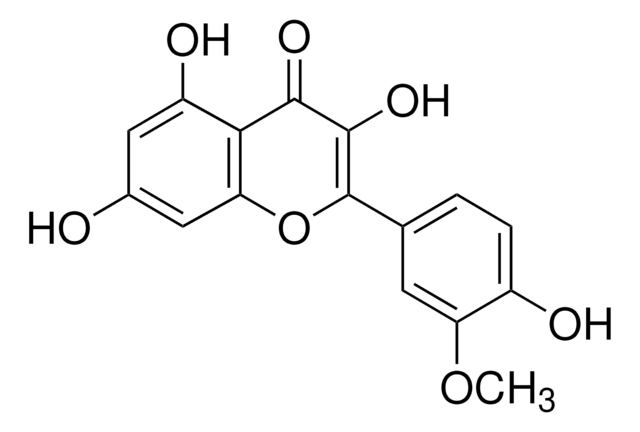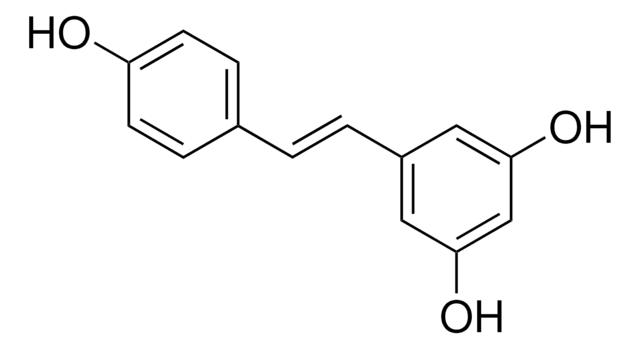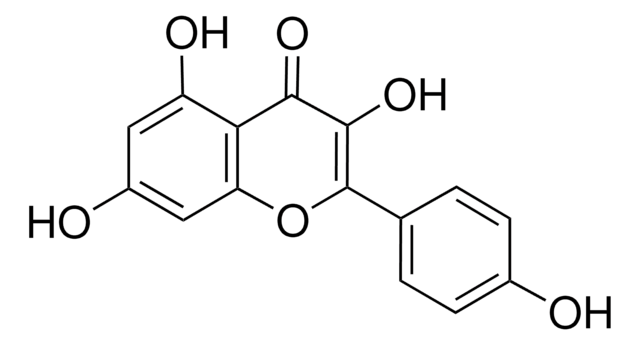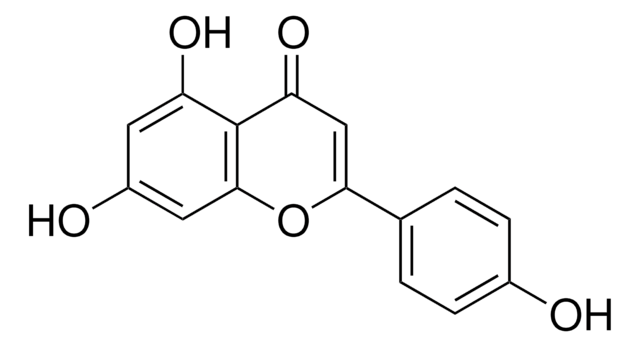G5547
GSK837149A
≥98% (HPLC), solid
Sinónimos:
N,N′-Di[4-(4-Methyl-pyrimidin-2-ylsulfamoyl)phenyl]-urea
About This Item
Productos recomendados
Quality Level
assay
≥98% (HPLC)
form
solid
color
white to off-white
solubility
DMSO: >10 mg/mL
H2O: insoluble
originator
GlaxoSmithKline
storage temp.
2-8°C
Biochem/physiol Actions
Features and Benefits
signalword
Warning
hcodes
Hazard Classifications
Eye Irrit. 2
Storage Class
11 - Combustible Solids
wgk_germany
WGK 2
flash_point_f
Not applicable
flash_point_c
Not applicable
ppe
dust mask type N95 (US), Eyeshields, Gloves
Certificados de análisis (COA)
Busque Certificados de análisis (COA) introduciendo el número de lote del producto. Los números de lote se encuentran en la etiqueta del producto después de las palabras «Lot» o «Batch»
¿Ya tiene este producto?
Encuentre la documentación para los productos que ha comprado recientemente en la Biblioteca de documentos.
Los clientes también vieron
Artículos
Information on fatty acid synthesis and metabolism in cancer cells. Learn how proliferatively active cells require fatty acids for functions such as membrane generation, protein modification, and bioenergetic requirements. These fatty acids are derived either from dietary sources or are synthesized by the cell.
Contenido relacionado
Discover Bioactive Small Molecules for Lipid Signaling Research
Nuestro equipo de científicos tiene experiencia en todas las áreas de investigación: Ciencias de la vida, Ciencia de los materiales, Síntesis química, Cromatografía, Analítica y muchas otras.
Póngase en contacto con el Servicio técnico








